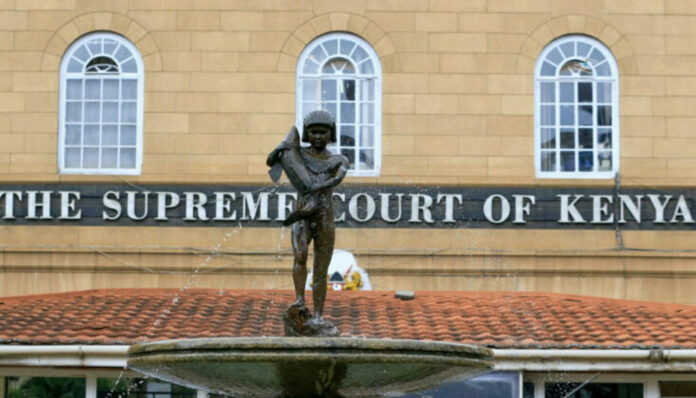In the past, Kenya has seen stories that one should dare say come from a Hollywood script. A phrase Kenyans often take seriously is ‘Fake it till you make it’.
One recent Hollywood story from Kenya that captured global attention is about our local ‘Mike Ross’, Brian Mwenda. Allegedly, he pretended to be an advocate of the High Court of Kenya for years before the truth came to light.
Fairly enough, he was having an outstanding run with his law career. The issue of quack professionals isn’t just limited to law but also cuts across the board in most Kenyan professions.
In this article, we shall take a look at a simple way that one can verify whether their representative is a qualified attorney.
Previously, a few unsuspecting Kenyans have lost resources to someone masquerading as a lawyer, which is illegal. The Advocates Act (Cap 16) regulates the conduct of lawyers and the entire legal practice.
It defines the qualifications of a genuine Kenyan lawyer and outlines the consequences for impersonating one without proper credentials. The law states that a fake lawyer should also not request payment for representation services offered.
There are also some important documents which a fake lawyer should never get their hands on which include:
- Property sale/Purchase records
- Limited Liability Company formation documents
- Partnership deeds or dissolution agreements
- Grants of probate documents
- Any documentation relating to legal proceedings.
Before proceeding to entrust masqueraders with important documents, here’s a quick and simple method to check if you might be dealing with a fake lawyer.
First, you will need to open the Law Society of Kenya (LSK) web portal where records of licensed lawyers are held, along with where they work.
- Navigate to LSK’s ‘Search Advocate’ button
- Type the full name of the lawyer in question. Click search and wait for results
If the lawyer is legitimate, the portal will show their photo, practising year, place of work, address, and current practising status. If the system returns a ‘No results found’ message, it’s likely that the person is a quack.
Brian Mwenda: Fake Nairobi lawyer who’s been representing clients in court
It’s important to note that the LSK web portal database includes both active and inactive advocates. Inactive status may result from reasons such as loss of license, suspension, or death.
What to do if dealing with a fake lawyer
If you become a victim of a fake lawyer, you have two options for recourse. First, report the case to the Advocates Complaints Commission to initiate investigations and prosecute the quack.
Should the process slow down, make your way to the Office of the Ombudsman.
Next time you choose a lawyer, here are a few pointers to green flags:
- Ask that they show you their practising certificate from LSK
- Since an LSK certificate can also be forged, conduct the above-stated due diligence
- View the law firm’s registration documents and indemnity cover to verify its legality
- Sign an engagement letter to show your agreement with the lawyer. It may include the service scope and fees
- While you provide documents, in writing, that will help shape your case, the law firm should acknowledge they have received your documents for the reasons agreed therein.
As for the red flags, do not just look at the classy black suit or fancy dress code with glimmering black shoes. Also, see beyond the classy office. Do not deposit any money or share any documents before signing an engagement letter.








